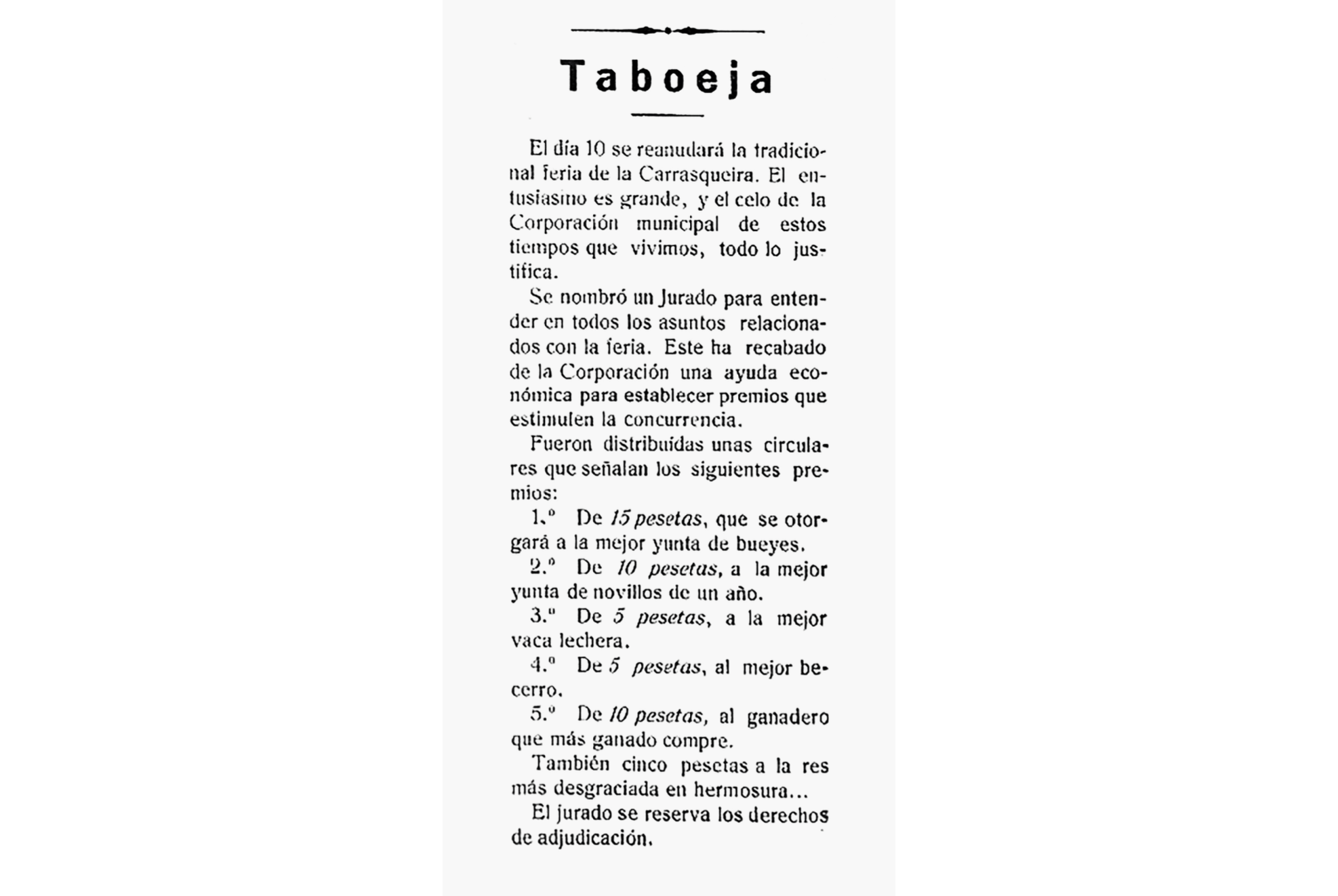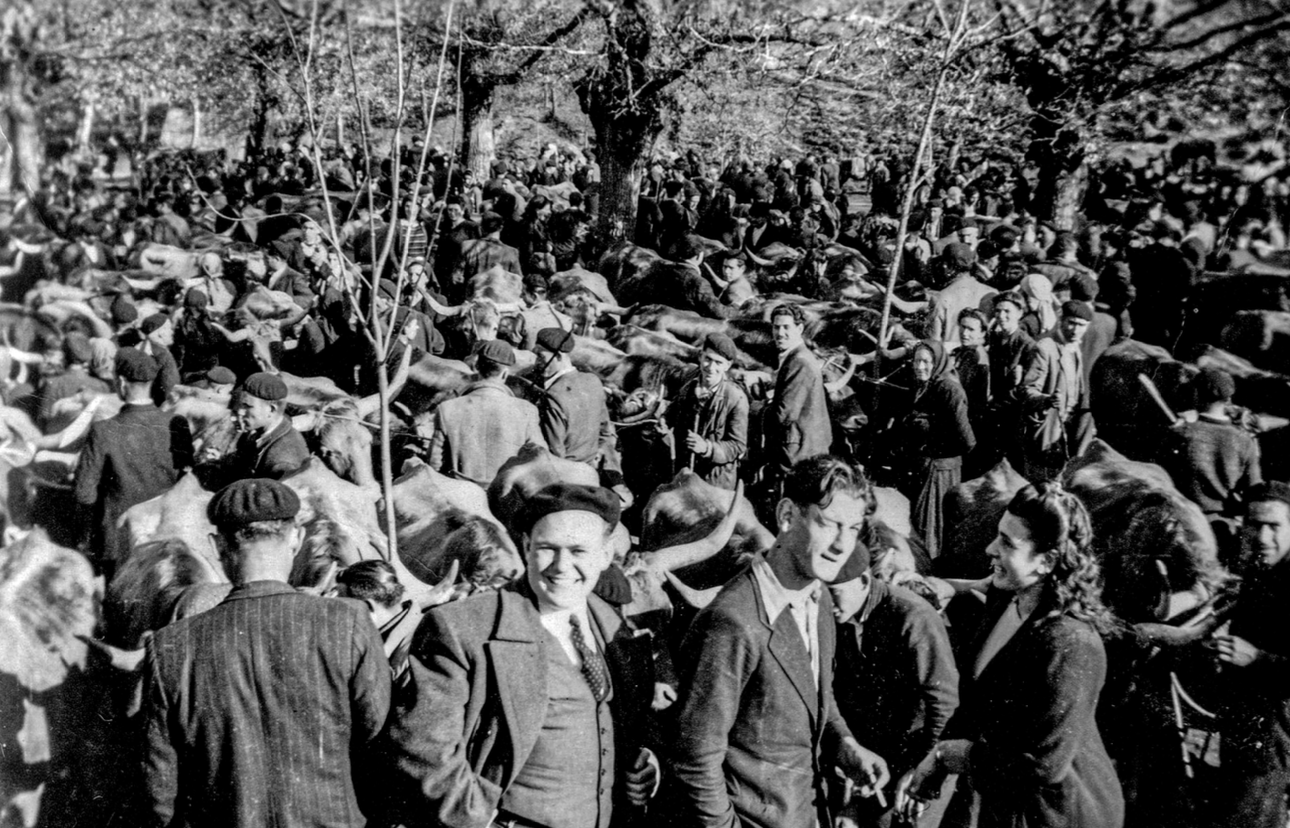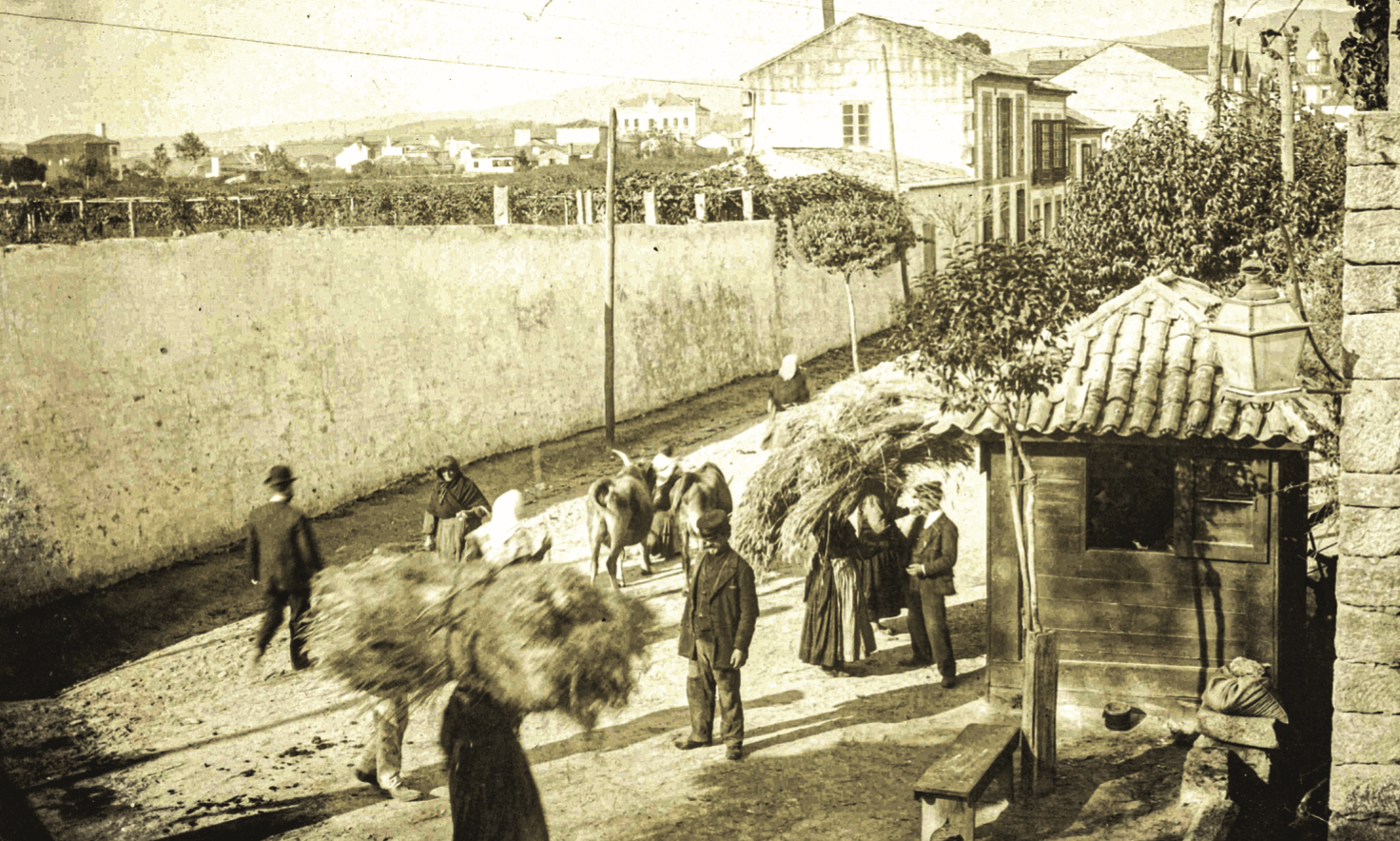The A Carrasqueira Fair
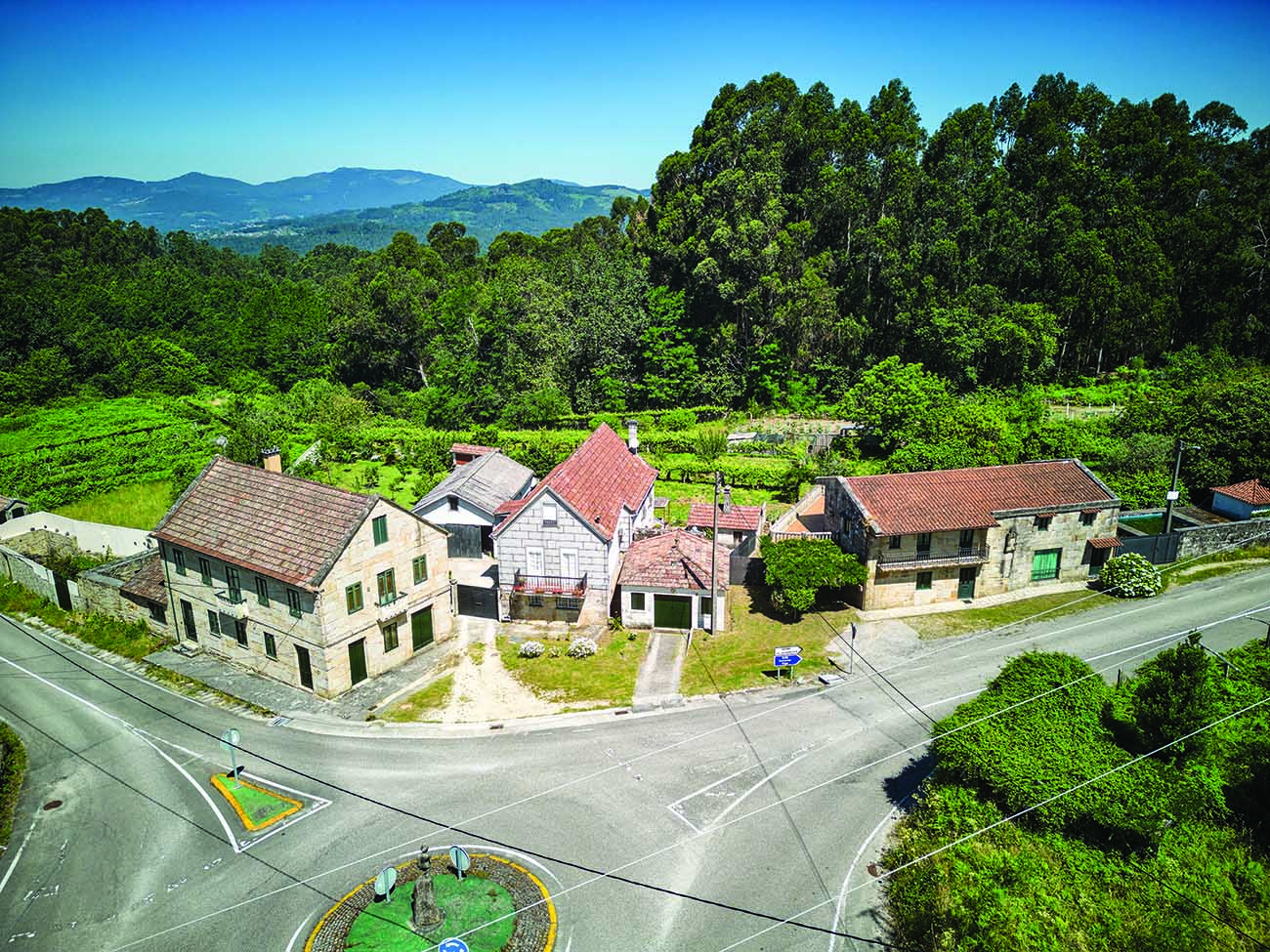
Aerial view of the place where the Carrasqueira Fair used to be held. Currently, some of the houses built on the site of the fair retain names that recall past trades and commercial activities: A Casa do Zapateiro (The Shoemaker’s House), A Casa da Tenda (The Store’s House)…
At the beginning of the 20th century, the livestock fair ceased to be held, perhaps due to strong competition from the Lira fair, which was more popular and popular.
1753 First mention
The Cadastre of the Marquis de la Ensenada, in his economic description of Taboexa, states that in Taboexa ‘there is a public fair that is held on the tenth day of every month of the year in which it is bought and sold, as far as the residents of the district of Salvatierra are concerned; and as for those from outside, who attend it, the Count of Salvatierra collects the rights, and in it they can say how much they estimate the product and even less by virtue of what title he collects them’.
1767 Monthly fair
Father Flórez, in his book ‘España Sagrada’ published in 1767, says that Taboexa has 250 inhabitants, and that one of the hermitages it owns is ‘in the place of A Carrasqueira, with a fair every month’.
1804 Consolidation
‘Another in A Cañiza on the twentieth of each month, with livestock, linen, lots of cured fish, hams, lard, various foodstuffs, and shops for muleteers. In Covelo on the eighth, for cattle, linen, leather, and carpentry tools; and on Thursdays of every week a market. In A Carrasqueira a fair is held on the tenth of every month, for cattle. There is another one in Lira on the eighteenth of every month. In Ponteareas there is another one on the last Saturday of the month, where cattle and a few horses, pigs, country linen, carpenters ‘tools, carts and farm implements, leather and leather tanned in the country, several shops for muleteers, and some foodstuffs (...)’.
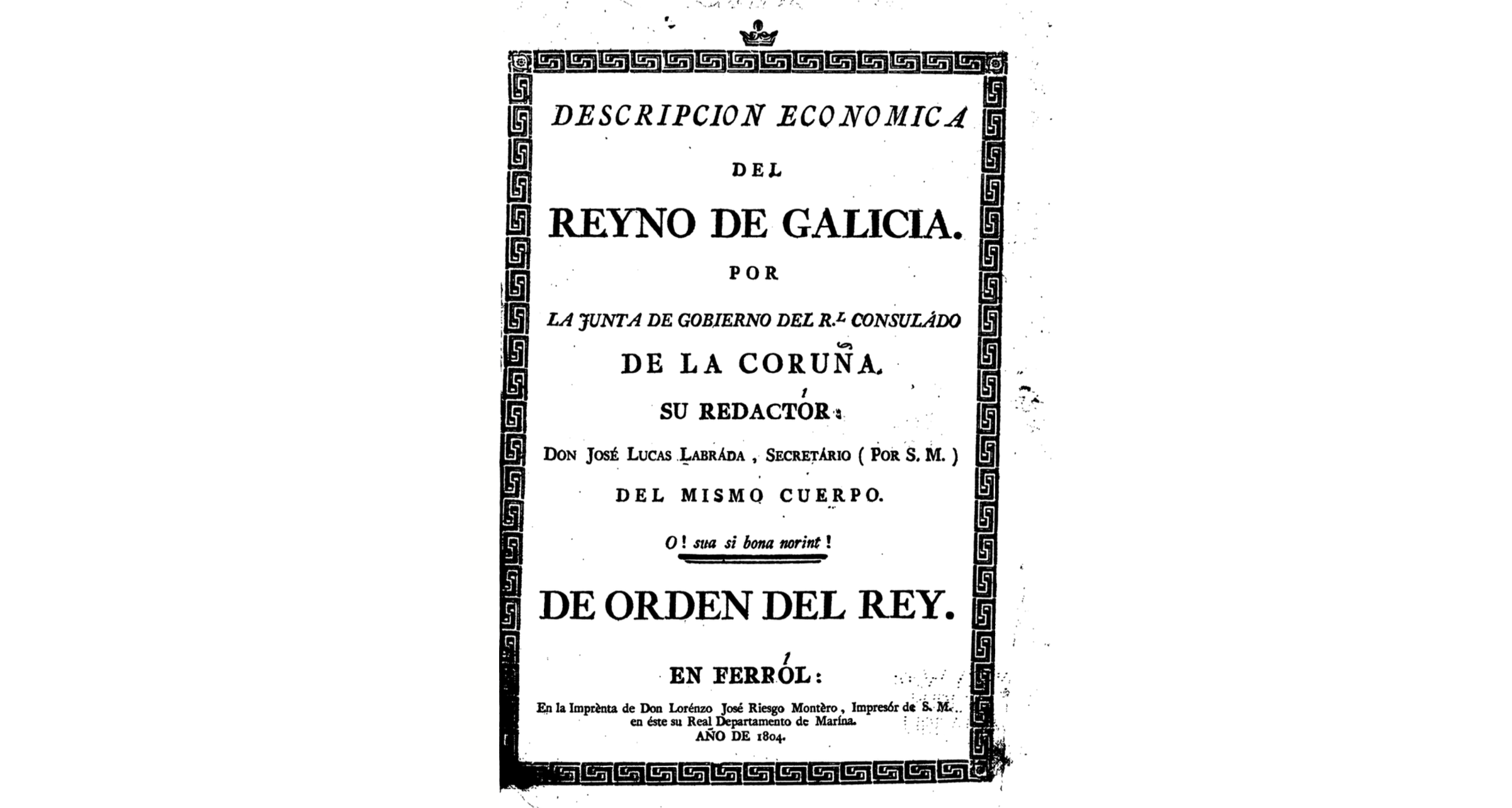
José Lucas Labrada.
Economic description of the Kingdom of Galicia (1804)
On 30 November 1870, the Deputación de Pontevedra published an ‘agreement of the town council of Setados establishing a fair on the 17th of each month and a market on Wednesdays of each week in the parish of Taboexa based on the articles of the municipal law of 20 August last which is not yet in force, it is agreed to authorise the establishment of the fair and market in accordance with the provisions of (...) the law of 21-10-1868 on condition that this agreement is approved by the governor to which effect it is brought to his attention’.
1894. Change of day
In 1894, the Setados Town Council agreed to move the fair from the 10th to the 2nd of each month, possibly as evidence that the fair was beginning to have attendance problems.
1927 Butcher's shop, conferences and shoe shop
‘El Tea’. 23rd April.
‘For approximately three years now, the butcher's shop at the Carrasqueira fair in this parish has not been selling meat, and the neighbours have had to buy this article in Ponteareas or As Neves, which causes great harm to the income of the Town Council - and to the inhabitants of this area - especially to the families who have sick people to look after.’
From Lisboa. 3rd October.
The weekly ‘Aires del Miño’, on 28th August 1927, publishes a news item from Taboexa, which reports on an initiative of the Mayor of As Neves, secondly, ‘a conference was held in the old Carrasqueira fair, referring to the rural slaughterhouses of O Porriño, in which the eloquent speakers Mosquera Nocedo and Gómez Bargo took part’.
.
‘El Tea’. 13th November.
The weekly newspaper El Tea reports the death of ‘Enrique Gómez Carrera. Among most of Taboexa's neighbours living here’ (referring to Lisbon) ’the death of this young man, who was only 21 years old and had already travelled to the Portuguese capital on two occasions, caused deep regret. ‘At present he was working for his trade, having opened a shoe shop in the Carrasqueira fair, where he was highly esteemed’.
1929. Dance on the day of the deceased
1st December. ‘El eco del Condado’.
‘On the 1st. ° of last December there was a lively dance in the field of the old fair of the Carrasqueira that began at three in the afternoon and ended at two in the morning of the following day, day in which the Commemoration of the Faithful Departed is held; and while the bells with their mournful sounds invited the living to pray for the dead, there was a farra, fireworks and bagpipes to distinguish us, not only from the neighbouring parishes, from others that are ten to twenty kilometres away... but even from the most distant villages. ... but even from the most uncultured villages that have a greater appreciation and gratitude for the memory of their progenitors’.
1930 Garages, tailors and electric light
Mentions on ‘El Tea’ newspaper
23rd July.
‘Our dear friend and former collaborator of EL TEA, Mr. Marcial Domínguez Carrera, left for Taboexa (As Neves), with the purpose of finding out the whereabouts of the pesetas that the residents of Taboexa and Batalláns sent from Lisbon, and to organise the fair of the Carrasqueira de Taboexa. The pesetas are difficult, the fair is a matter of good will, but without any tax’.
23rd August.
‘Our friend, the mechanic Pedro Damas Alonso, builds an important garage for cars at the Carrasqueira Fair, next to the road under construction.
In this way, he is already feeling the development of the industry’ (...)
3rd September.
‘Our friend Manuel Rodriguez Puente has just set up a tailor's shop in the Carrasqueira Fair. We wish him every success in his business’.
13rd September.
‘Electricity was installed in several houses in the Carrasqueira Fair, which shows that we will soon enjoy the lighting.’
1931. Recovery of the fair
‘El eco del Condado’
10th December.
‘Some printed documents have been widely distributed and posted in the most public places, stating the agreement of our municipal corporation to restore the old fair of the Carrasqueira of this parish, for all kinds of livestock and fruits of the country, from the 10th of next January 1932: with the particularity of not charging any tax for three years.’ (...)
1932 Prizes and incentives
1st January. ‘El Sobroso’
1936 Disappearance
In 1936 the fair was no longer held.


